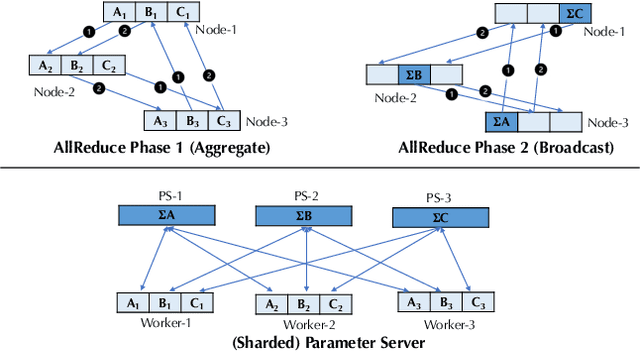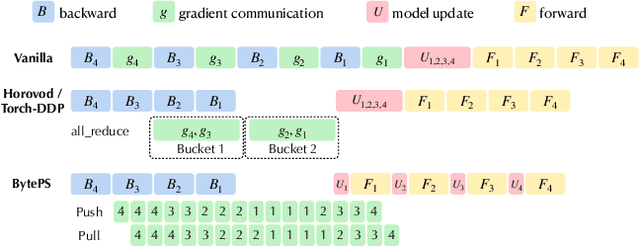Shengzhuo Zhang
Test-Time Scaling with Reflective Generative Model
Jul 02, 2025Abstract:We introduce our first reflective generative model MetaStone-S1, which obtains OpenAI o3's performance via the self-supervised process reward model (SPRM). Through sharing the backbone network and using task-specific heads for next token prediction and process scoring respectively, SPRM successfully integrates the policy model and process reward model(PRM) into a unified interface without extra process annotation, reducing over 99% PRM parameters for efficient reasoning. Equipped with SPRM, MetaStone-S1 is naturally suitable for test time scaling (TTS), and we provide three reasoning effort modes (low, medium, and high), based on the controllable thinking length. Moreover, we empirically establish a scaling law that reveals the relationship between total thinking computation and TTS performance. Experiments demonstrate that our MetaStone-S1 achieves comparable performance to OpenAI-o3-mini's series with only 32B parameter size. To support the research community, we have open-sourced MetaStone-S1 at https://github.com/MetaStone-AI/MetaStone-S1.
BAGUA: Scaling up Distributed Learning with System Relaxations
Jul 12, 2021



Abstract:Recent years have witnessed a growing list of systems for distributed data-parallel training. Existing systems largely fit into two paradigms, i.e., parameter server and MPI-style collective operations. On the algorithmic side, researchers have proposed a wide range of techniques to lower the communication via system relaxations: quantization, decentralization, and communication delay. However, most, if not all, existing systems only rely on standard synchronous and asynchronous stochastic gradient (SG) based optimization, therefore, cannot take advantage of all possible optimizations that the machine learning community has been developing recently. Given this emerging gap between the current landscapes of systems and theory, we build BAGUA, a communication framework whose design goal is to provide a system abstraction that is both flexible and modular to support state-of-the-art system relaxation techniques of distributed training. Powered by the new system design, BAGUA has a great ability to implement and extend various state-of-the-art distributed learning algorithms. In a production cluster with up to 16 machines (128 GPUs), BAGUA can outperform PyTorch-DDP, Horovod and BytePS in the end-to-end training time by a significant margin (up to 1.95 times) across a diverse range of tasks. Moreover, we conduct a rigorous tradeoff exploration showing that different algorithms and system relaxations achieve the best performance over different network conditions.
 Add to Chrome
Add to Chrome Add to Firefox
Add to Firefox Add to Edge
Add to Edge